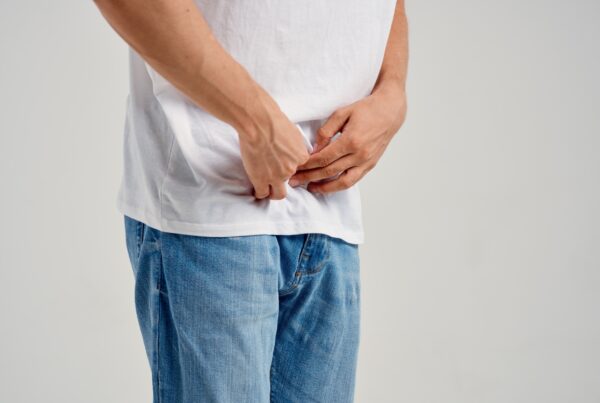When considering a vasectomy, many men have questions about how the procedure might impact their sexual pleasure and overall sexual function. Understanding these concerns is crucial, as sexual satisfaction is an important aspect of overall well-being. This article aims to address common concerns and provide accurate information about the impact of vasectomy on sexual pleasure, reassuring men about the procedure’s effects on sexual function.
How a Vasectomy Works
A vasectomy is a form of male sterilization intended to provide permanent contraception. It is a minor surgical procedure that blocks or seals the vas deferens, the tubes that carry sperm from the testicles to the urethra. Here’s a brief overview of how it works:
The Procedure
- Blocking the Vas Deferens: During a vasectomy, a healthcare provider will make a small incision in the scrotum to access the vas deferens. Each vas deferens is then cut, and cauterized, to prevent sperm from mixing with the semen that is ejaculated.
- Sperm Production: Despite the blockage, the testicles continue to produce sperm. However, because the sperm cannot travel through the vas deferens, they are reabsorbed by the body.
- Recovery from the Procedure: Post-vasectomy recovery is generally quick. Most men can return to their normal activities within a few days, although it is recommended to avoid strenuous activities and heavy lifting for about a week. Swelling, bruising, and mild discomfort are common but usually subside within a few days.
This simple yet effective procedure ensures that sperm do not enter the semen, thereby preventing pregnancy.
Impact on Sexual Function After a Vasectomy
One of the most common concerns about vasectomy is whether it will affect sexual function, including testosterone production and libido. It’s important to clarify that a vasectomy does not interfere with any of the following:
Hormone Levels
A vasectomy does not affect the production of testosterone or any other male hormones. Testosterone, the hormone responsible for male sex drive and other secondary sexual characteristics, continues to be produced in the testicles and released into the bloodstream normally. This means that a man’s hormonal balance remains unchanged after the procedure.
Libido and Sexual Desire
Most studies and clinical evidence suggest that there is typically no change in libido or sexual desire following a vasectomy. Since the hormonal levels remain unaffected, the desire for sexual activity generally remains the same as it was before the procedure. Some men even report an increase in sexual satisfaction, possibly due to the relief of not worrying about unwanted pregnancies.
Effects on Sensation and Pleasure After a Vasectomy
Another common and significant concern is whether a vasectomy will alter the physical sensations experienced during sexual activity, including orgasm and overall pleasure.
Sensation and Nerve Function
The vasectomy procedure does not affect the nerves responsible for sexual sensation and pleasure. These nerves are not involved in the vasectomy process and remain intact after a vasectomy. The sensations felt during sexual activity, including erection and orgasm, remain unchanged.
Orgasm and Ejaculation
After a vasectomy, men continue to experience orgasms and ejaculate. The only difference is that the ejaculate no longer contains sperm. This change is unnoticeable to both the man and his partner. The quantity and quality of the ejaculate remain consistent with what was experienced before the procedure.
A vasectomy does not diminish sexual pleasure in any way. Men continue to enjoy the same physical sensations and orgasms as they did prior to the procedure.
Psychological Aspects of a Vasectomy
The psychological impact of a vasectomy can sometimes influence a man’s perception of sexual pleasure. Addressing these concerns and misconceptions is vital for overall sexual health and well-being.
Common Misconceptions
- Loss of Masculinity: Some men fear that having a vasectomy might make them feel less masculine. It is important to understand that masculinity is not tied to one’s ability to father children. Many men find that their sense of masculinity and self-esteem remain unchanged or even improve after the procedure.
- Changes in Sexual Enjoyment: Another misconception is that sexual enjoyment will decrease after a vasectomy. However, as discussed, the physical sensations and pleasure associated with sexual activity remain unchanged. Discussing these concerns with your healthcare provider can further help to dispel these fears and provide additional reassurance.
Communication and Support
Engaging in open communication with your healthcare provider before and after the procedure is a productive and effective way to alleviate any concerns you might have. Discussing any fears or misconceptions with a professional can help ensure a thorough understanding of what to expect. Additionally, having a supportive partner and open dialogue about the decision and its implications can enhance emotional and psychological well-being.
Recovery and Post-Procedure Experience
Understanding the recovery process and post-procedure experience can also help alleviate concerns about sexual function and pleasure.
Recovery Process
- Immediate Aftercare: After the procedure, men might experience some discomfort, swelling, or bruising in the scrotal area. This is typically mild and can be managed with over-the-counter pain relief and ice packs.
- Short-Term Abstinence: Doctors usually recommend abstaining from sexual activity for about a week to allow the surgical site to heal properly.
- Follow-Up: Involves semen analysis to confirm that sperm are no longer present in the ejaculate.
Long-Term Outlook
In the long term, most men experience no adverse effects on their sexual function or pleasure. The minor discomfort experienced immediately after the procedure typically resolves within a few days. Following the post-procedure care instructions and attending follow-up appointments help ensure a comfortable and efficient recovery.
Conclusion
A vasectomy is a safe, effective, and permanent form of male contraception that does not negatively impact sexual function or pleasure. The procedure is over 99.9% effective and does not affect hormone levels, libido, or the physical sensations associated with sexual activity.
Men can continue to enjoy sexual pleasure and orgasms just as they did before the procedure.
Understanding the intricacies of a vasectomy can help men make better informed decisions and alleviate any fears related to the impact on their sexual function and pleasure. By following the proper post-procedure care, men can ensure a positive experience and continue to enjoy a satisfying sexual life. Contact Purely Vasectomies for more information.





